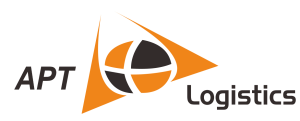-
21
Feb
How to Choose the Right Mode Between Air Freight and Ocean Freight?
Air Chartering, air freight, Air Freight Forwarding, Air Freight services, Break Bulk, Cargo Insurance, custom clearance, Customs Clearance for Export / Import Shipments, Dangerous goods, Door to Door service, freight forwarder, Freight forwarders In India, freight forwarding company, Freight Forwarding company in India, Freight forwarding company in Mumbai, Hazardous Cargo, Indian Freight forwarder, Inland Transportation, Inland Transportation anywhere in India, Inland Trucking, Logistics, Logistics Service Provider in India, ODC Cargo, Over Dimensional Cargo, personal baggage, personal effects, Project Cargo, Project cargo Handling, sea freight, Sea Freight Forwarding, shipping, Transportation, trucking, warehousing, Warehousing & Distribution, Warehousing and distribution
MEANING
When it comes to transporting goods internationally, one of the critical decisions that businesses face is whether to opt for air freight or ocean freight. Each mode of transportation offers its own set of advantages and disadvantages, and selecting the right one depends on various factors including the nature of the cargo, budget constraints, delivery timeline, and destination. Let’s delve deeper into the comparison between air freight and ocean freight to help you make an informed decision for your cargo shipments:
- Speed and Transit Time:
- Air Freight: Air freight is known for its speed and efficiency. It offers significantly shorter transit times compared to ocean freight, making it ideal for time-sensitive shipments. Cargo can be delivered anywhere in the world within a matter of days.
- Ocean Freight: Ocean freight typically has longer transit times due to the slower speed of vessels. Shipments can take weeks or even months to reach their destination, depending on the distance and the chosen route.
- Cost:
- Air Freight: While air freight offers speed, it comes at a higher cost compared to ocean freight. Air shipping rates are generally more expensive due to factors such as fuel costs, handling fees, and limited capacity.
- Ocean Freight: Ocean freight is more cost-effective for large, heavy, or non-perishable goods. Shipping by sea is typically cheaper per unit of weight or volume compared to air freight. However, businesses should consider additional costs such as port charges, customs fees, and potential delays.
- Reliability:
- Air Freight: Air freight is considered to be more reliable in terms of meeting delivery deadlines, especially for time-critical shipments. Airlines operate on strict schedules, reducing the risk of delays caused by weather conditions or unforeseen circumstances.
- Ocean Freight: Ocean freight is susceptible to various factors that can impact reliability, such as weather-related delays, port congestion, and vessel schedules. While shipping companies strive to maintain schedules, there is a higher likelihood of delays compared to air freight.
- Cargo Type and Size:
- Air Freight: Air freight is suitable for high-value, perishable, and lightweight cargo. It is also preferred for smaller shipments due to the limited space available in aircraft holds. Fragile or sensitive goods that require careful handling benefit from the smoother transportation environment offered by air freight.
- Ocean Freight: Ocean freight is ideal for bulky, heavy, or non-urgent cargo. It is commonly used for transporting goods such as machinery, vehicles, furniture, and raw materials in large quantities. Ocean vessels have ample space to accommodate oversized or irregularly shaped cargo.
- Environmental Impact:
- Air Freight: Air freight is associated with higher carbon emissions per ton-mile compared to ocean freight. While it offers speed and efficiency, it contributes to a greater environmental footprint due to aircraft emissions.
- Ocean Freight: Ocean freight has a lower carbon footprint per ton-mile, making it a more environmentally friendly option compared to air freight. Shipping by sea produces fewer emissions, especially for large-volume cargo shipments.
In conclusion, choosing between air freight and ocean freight depends on a careful evaluation of factors such as delivery urgency, budget constraints, cargo characteristics, and environmental considerations. While air freight offers speed and reliability, it comes at a higher cost and environmental impact. On the other hand, ocean freight is cost-effective for large shipments but entails longer transit times and potential reliability issues. Businesses should assess their specific shipping requirements and priorities to determine the most suitable mode of transportation for their cargo.

B-214/215 A /222, ASHOKA SUPER MARKET,
S.V ROAD, GOREGAON WEST,
MUMBAI 400062
INDIA
CTC :- BALA IYER – +919820517857 ( PHONE / WHATSAPP)
SACHIN TIWARI – +917700914388 ( PHONE/ WHATSAPP)
Comments are closed.
- Speed and Transit Time:
How to Choose the Right Mode Between Air Freight and Ocean Freight?

B-214/215 A /222, ASHOKA SUPER MARKET,
S.V ROAD, GOREGAON WEST,
MUMBAI 400062
INDIA
CTC :- BALA IYER – +919820517857 ( PHONE / WHATSAPP)
SACHIN TIWARI – +917700914388 ( PHONE/ WHATSAPP)




